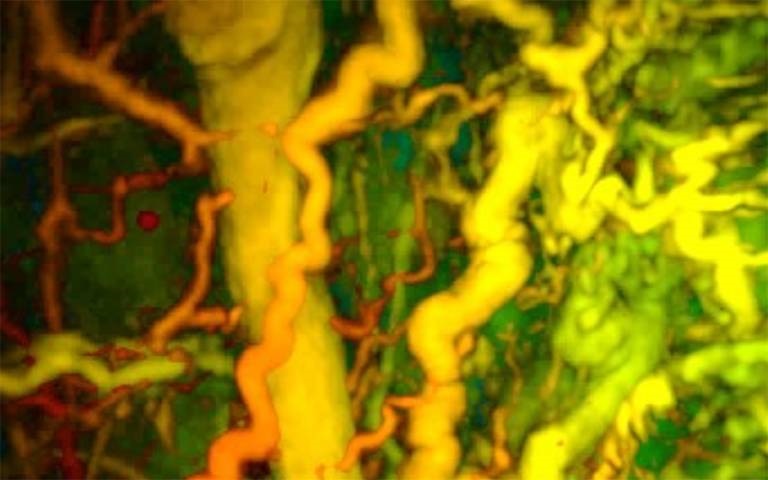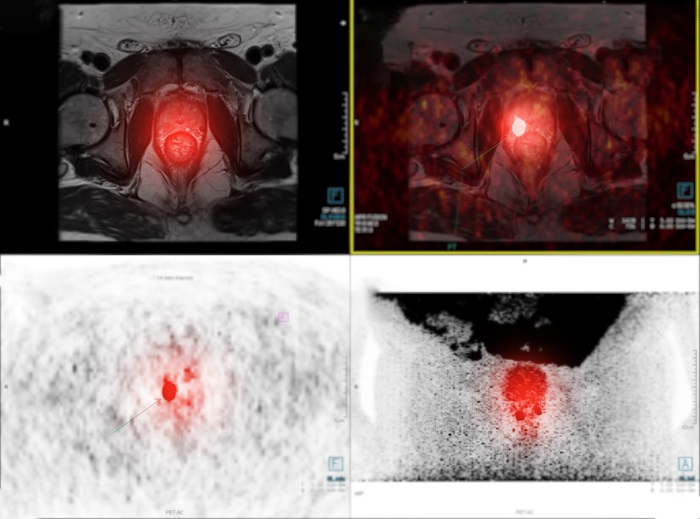Prototype Breast CT System Differentiates Internal Structures
|
By MedImaging International staff writers Posted on 17 Nov 2021 |
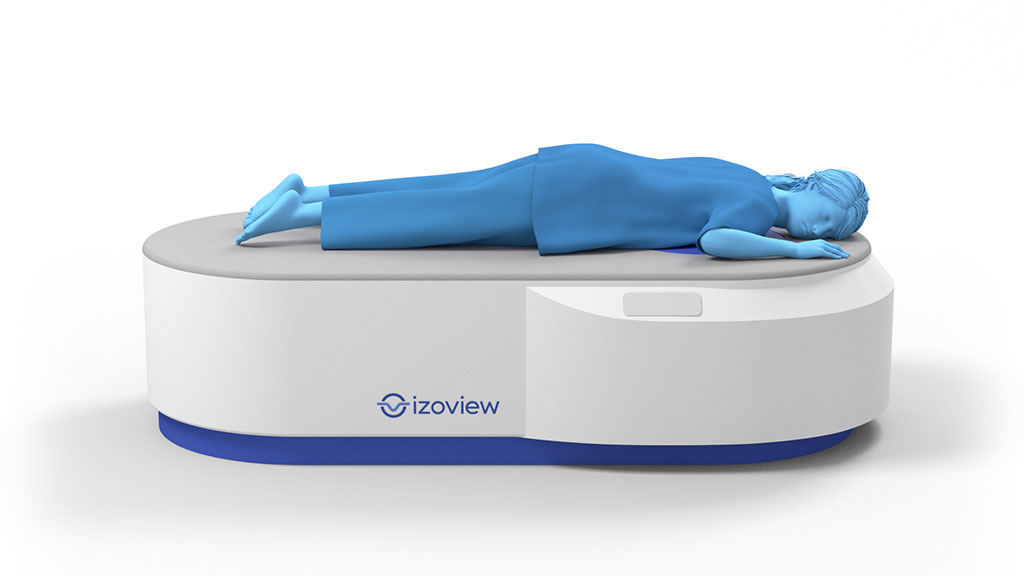
Image: The IzoView breast imaging platform (Photo courtesy of Izotropic)
A dedicated breast computed tomography (CT) imaging platform powered by deep learning (DL) could provide more accurate detection and diagnosis of breast cancers.
The IzoView, under development by Izotropic (Vancouver, Canada), is a novel breast imaging platform designed to produce true 3D high-resolution images with a single 10-second scan taken in a comfortable, face down position. And since natural breast orientation is maintained during the scan, painful compression and unpleasant technician breast handlings become a thing of the past. Also, as the patient places her own breast in the izoview imaging cup, dignity is preserved, providing a more relaxed experience for the patient.
The IzoView imaging hardware beneath the table circles around the patient's breast, producing approximately 500 high-resolution images (depending on breast length) in just 10 seconds, with a radiation dose comparable to two-dimensional mammography. A true 3D reconstructed image is produced within 30 seconds, which a radiologist can then view from any angle like a 3D model, or slide through the 500 cross-sectional images individually to better determine tumor size, shape, location, and relation to internal breast structures.
In ongoing clinical trials, the IzoView found lesions and tumors in the 3-5mm size range (when used with contrast agents). Izotropic has also entered into an agreement with Johns Hopkins University (JHU; Baltimore, MD, USA)) to develop DL image reconstruction algorithms to further improve image processing performance, while minimizing computational burden. The company also anticipates that IzoView's high resolution 3D images could provide more accurate margin analysis, a higher spatial resolution, and improved lesion characterization.
“Izotropic is working to bring breakthrough developments in methods integrating data-based machine learning approaches to reduce noise and image biases with the preservation of the intrinsic spatial resolution of the IzoView system,” said John McGraw, MD, CEO of Izotropic. “IzoView will offer an outstanding platform for the development and implementation of a novel set of learning-based approaches for accurate identification and characterization of breast pathologies.”
Prone positioning takes advantage of gravity to displace the breast away from the chest wall into an opening in the breast board or table. As a result, significantly less radiation exposure to the heart and lungs is delivered than to patients imaged in the supine position.
Related Links:
Izotropic
The IzoView, under development by Izotropic (Vancouver, Canada), is a novel breast imaging platform designed to produce true 3D high-resolution images with a single 10-second scan taken in a comfortable, face down position. And since natural breast orientation is maintained during the scan, painful compression and unpleasant technician breast handlings become a thing of the past. Also, as the patient places her own breast in the izoview imaging cup, dignity is preserved, providing a more relaxed experience for the patient.
The IzoView imaging hardware beneath the table circles around the patient's breast, producing approximately 500 high-resolution images (depending on breast length) in just 10 seconds, with a radiation dose comparable to two-dimensional mammography. A true 3D reconstructed image is produced within 30 seconds, which a radiologist can then view from any angle like a 3D model, or slide through the 500 cross-sectional images individually to better determine tumor size, shape, location, and relation to internal breast structures.
In ongoing clinical trials, the IzoView found lesions and tumors in the 3-5mm size range (when used with contrast agents). Izotropic has also entered into an agreement with Johns Hopkins University (JHU; Baltimore, MD, USA)) to develop DL image reconstruction algorithms to further improve image processing performance, while minimizing computational burden. The company also anticipates that IzoView's high resolution 3D images could provide more accurate margin analysis, a higher spatial resolution, and improved lesion characterization.
“Izotropic is working to bring breakthrough developments in methods integrating data-based machine learning approaches to reduce noise and image biases with the preservation of the intrinsic spatial resolution of the IzoView system,” said John McGraw, MD, CEO of Izotropic. “IzoView will offer an outstanding platform for the development and implementation of a novel set of learning-based approaches for accurate identification and characterization of breast pathologies.”
Prone positioning takes advantage of gravity to displace the breast away from the chest wall into an opening in the breast board or table. As a result, significantly less radiation exposure to the heart and lungs is delivered than to patients imaged in the supine position.
Related Links:
Izotropic
Latest Radiography News
- Novel Breast Cancer Screening Technology Could Offer Superior Alternative to Mammogram
- Artificial Intelligence Accurately Predicts Breast Cancer Years Before Diagnosis
- AI-Powered Chest X-Ray Detects Pulmonary Nodules Three Years Before Lung Cancer Symptoms
- AI Model Identifies Vertebral Compression Fractures in Chest Radiographs
- Advanced 3D Mammography Detects More Breast Cancers
- AI X-Ray Diagnostic Tool Offers Rapid Pediatric Fracture Detection
- AI-Powered Chest X-Ray Analysis Shows Promise in Clinical Practice
- AI-Based Algorithm Improves Accuracy of Breast Cancer Diagnoses
- Groundbreaking X-Ray Imaging Technique Could Improve Medical Diagnostics
- Innovative X-Ray Technique Captures Human Heart with Unprecedented Detail
- Cutting-Edge Technology Enhances Chest X-Ray Classification for Superior Patient Outcomes
- AI Model Accurately Estimates Lung Function Using Chest X-Rays
- High-Powered Motorized Mobile C-Arm Delivers State-Of-The-Art Images for Challenging Procedures
- Injury Prediction Rule Reduces Radiographic Imaging Exposure in Children
- AI Detects More Breast Cancers with Fewer False Positives
- AI-Powered Portable Thermal Imaging Solution Could Complement Mammography for Breast Cancer Screening
Channels
MRI
view channel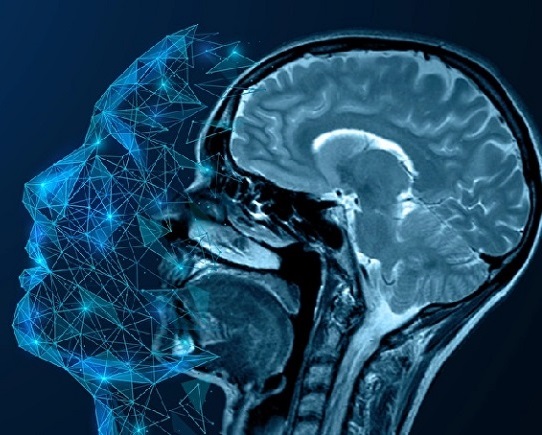
Groundbreaking AI-Powered Software Significantly Enhances Brain MRI
Contrast-enhanced magnetic resonance imaging (MRI) utilizes contrast agents to illuminate specific tissues or abnormalities, leading to improved visualization and more comprehensive information.... Read more.jpeg)
MRI Predicts Patient Outcomes and Tumor Recurrence in Rectal Cancer Patients
Colorectal cancer is on the rise among younger adults—those under 50—while it has been declining in older populations. It is estimated that approximately 1 in 23 men and 1 in 25 women will be diagnosed... Read more
Portable MRI System Dramatically Cuts Time-To-Scan vs. Conventional MRI in Stroke Patients
Imaging of the brain is crucial for the management of acute stroke and transient ischemic attack. Key roles of imaging include confirming the diagnosis, determining treatment eligibility, indicating the... Read moreUltrasound
view channel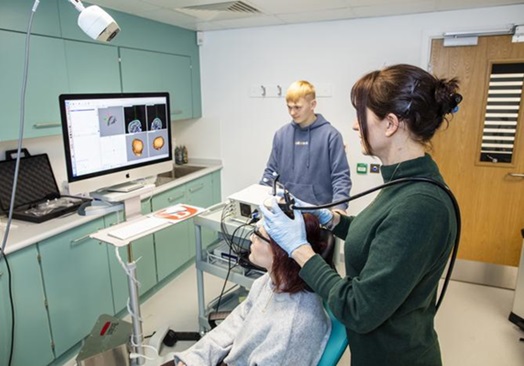
Ultrasound Can Identify Sources of Brain-Related Issues and Disorders Before Treatment
For many years, healthcare professionals worldwide have relied on ultrasound to monitor the growth of unborn infants and evaluate the health of internal organs. However, ultrasound technology, once primarily... Read more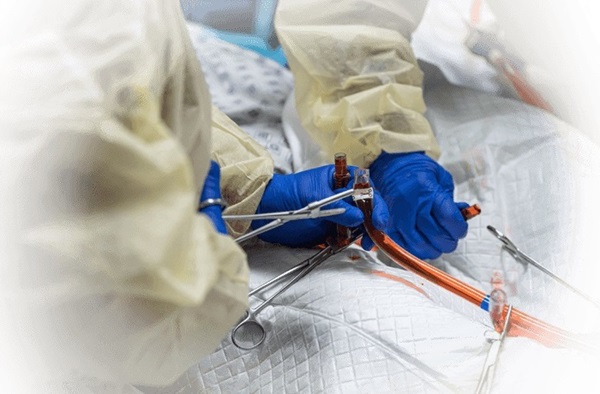
New Guideline on Handling Endobronchial Ultrasound Transbronchial Needle Samples
Endobronchial ultrasound-guided transbronchial needle aspiration (EBUS-TBNA) has become the standard procedure for the initial diagnosis and staging of lung cancer; however, there is limited guidance on... Read more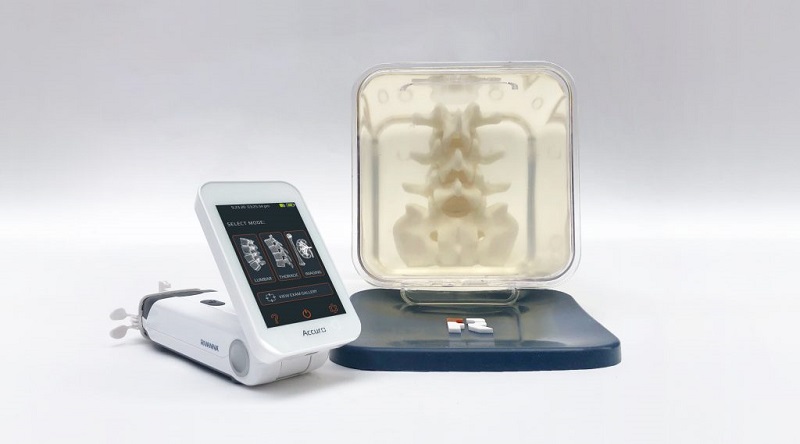
Groundbreaking Ultrasound-Guided Needle Insertion System Improves Medical Procedures
Ultrasound-guided neuraxial procedures have traditionally been hampered by technical challenges, such as the need for three hands to manage the needle, probe, and syringe simultaneously, steep needle angles... Read moreNuclear Medicine
view channel
PET Software Enhances Diagnosis and Monitoring of Alzheimer's Disease
Alzheimer’s disease is marked by the buildup of beta-amyloid plaques and tau protein tangles in the brain. These deposits of beta-amyloid and tau appear in various brain regions at differing rates as the brain ages.... Read more.jpg)
New Photon-Counting CT Technique Diagnoses Osteoarthritis Before Symptoms Develop
X-ray imaging has evolved significantly since its introduction in 1895. This technique is known for capturing images quickly, making it ideal for emergency situations; however, it does not provide adequate... Read moreGeneral/Advanced Imaging
view channel
Low-Dose CT Screening for Lung Cancer Can Benefit Heavy Smokers
Lung cancer is often diagnosed at a late stage, with only about one-fifth to one-sixth of patients surviving five years after diagnosis. A new report now suggests that low-dose computed tomography (CT)... Read more![Image: A kidney showing positive [89Zr]Zr-girentuximab PET and histologically confirmed clear-cell renal cell carcinoma (Photo courtesy of Dr. Brian Shuch/UCLA Health) Image: A kidney showing positive [89Zr]Zr-girentuximab PET and histologically confirmed clear-cell renal cell carcinoma (Photo courtesy of Dr. Brian Shuch/UCLA Health)](https://globetechcdn.com/mobile_medicalimaging/images/stories/articles/article_images/2024-10-04/ca9scan.jpg)
Non-Invasive Imaging Technique Accurately Detects Aggressive Kidney Cancer
Kidney cancers, known as renal cell carcinomas, account for 90% of solid kidney tumors, with over 81,000 new cases diagnosed annually in the United States. Among the various types, clear-cell renal cell... Read more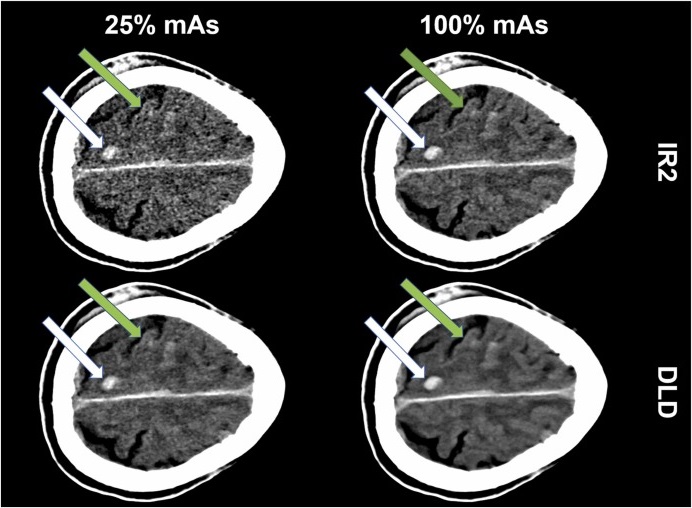
AI Algorithm Reduces Unnecessary Radiation Exposure in Traumatic Neuroradiological CT Scans
Traumatic neuroradiological emergencies encompass conditions that require immediate and accurate diagnosis for effective treatment and optimal patient outcomes. These emergencies can include injuries to... Read more
New Solution Enhances AI-Based Quality Control and Diagnosis in Medical Imaging
Medical image data makes up 80% of clinical data, and artificial intelligence (AI) offers significant potential to unlock its full value, which is crucial for clinical diagnosis, decision-making, and disease... Read moreImaging IT
view channel
New Google Cloud Medical Imaging Suite Makes Imaging Healthcare Data More Accessible
Medical imaging is a critical tool used to diagnose patients, and there are billions of medical images scanned globally each year. Imaging data accounts for about 90% of all healthcare data1 and, until... Read more
Global AI in Medical Diagnostics Market to Be Driven by Demand for Image Recognition in Radiology
The global artificial intelligence (AI) in medical diagnostics market is expanding with early disease detection being one of its key applications and image recognition becoming a compelling consumer proposition... Read moreIndustry News
view channel.jpeg)
Philips and Medtronic Partner on Stroke Care
A stroke is typically an acute incident primarily caused by a blockage in a brain blood vessel, which disrupts the adequate blood supply to brain tissue and results in the permanent loss of brain cells.... Read more
Siemens and Medtronic Enter into Global Partnership for Advancing Spine Care Imaging Technologies
A new global partnership aims to explore opportunities to further expand access to advanced pre-and post-operative imaging technologies for spine care. Medtronic plc (Galway, Ireland) and Siemens Healthineers... Read more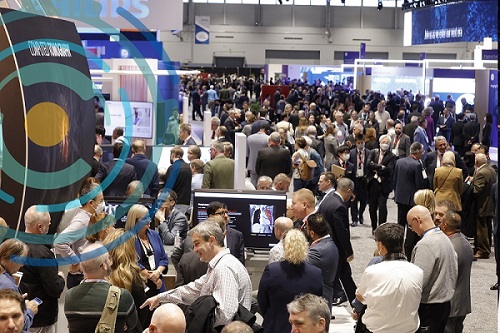
RSNA 2024 Technical Exhibits to Showcase Latest Advances in Radiology
The Radiological Society of North America (RSNA, Oak Brook, IL, USA) has announced highlights of the Technical Exhibits at RSNA 2024: Building Intelligent Connections, the Society’s 110th Scientific Assembly... Read more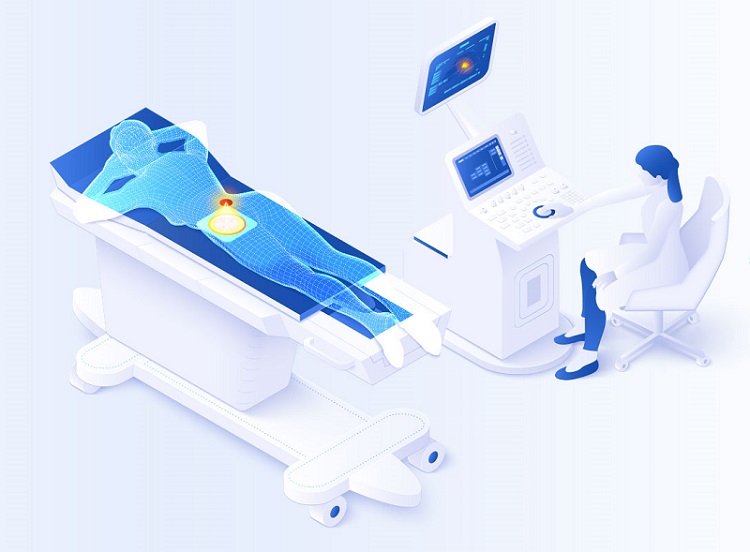













.jpg)
